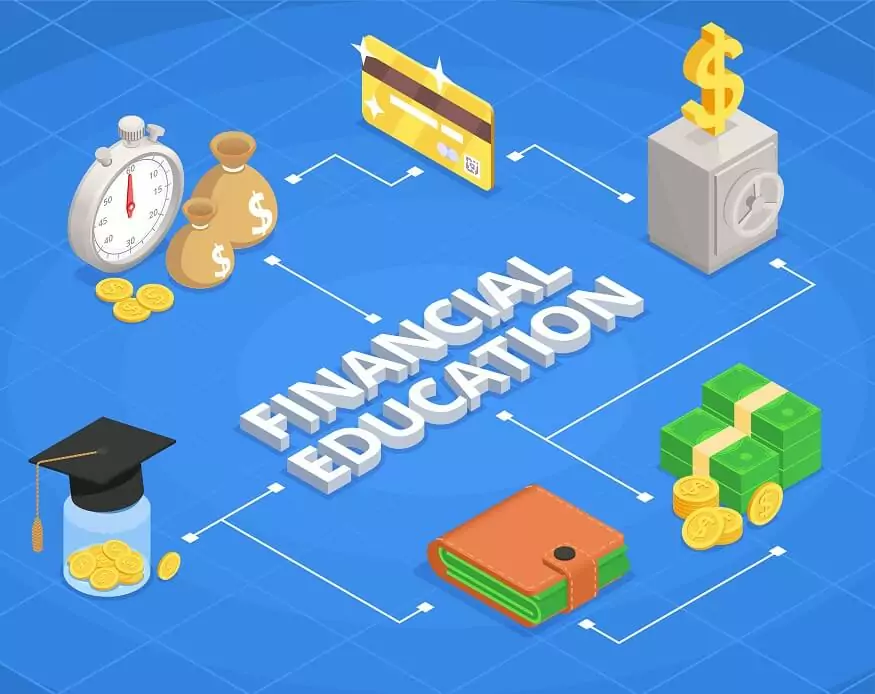Financial literacy is the ability to understand and effectively use various financial skills, including personal financial management, budgeting, and investing. Being financially literate means having the knowledge necessary to make informed financial decisions, which in turn supports a stable and prosperous life.
The Scope of Financial Literacy

Financial literacy encompasses a wide range of financial skills and concepts. Key areas include:
- Personal Financial Management: This involves managing your income, expenses, savings, and investments to meet personal financial goals.
- Budgeting: Creating a budget helps track income and expenditures, ensuring that spending does not exceed earnings.
- Investing: Understanding investment options and strategies can help grow wealth over time.
- Debt Management: This includes understanding how to use debt responsibly, repay it efficiently, and avoid high-interest debt traps.
Why Financial Literacy Matters
Financial literacy is crucial because it supports overall financial well-being. It empowers individuals to make sound financial decisions that can lead to improved financial stability and independence. Here are some key reasons why financial literacy is important:
- Supports Financial Well-Being: Proper management of daily living expenses, living within one’s means, and planning for future financial needs are all part of being financially literate. It helps avoid high levels of debt and financial stress.
- Prepares for Retirement: Understanding how to save and invest for retirement ensures that individuals can maintain their lifestyle and financial security as they age.
- Prevents Financial Fraud: Financially literate individuals are less likely to fall victim to financial scams and frauds because they can recognize and avoid suspicious financial activities.
- Promotes Economic Stability: On a larger scale, widespread financial literacy contributes to economic stability and growth by fostering a more financially responsible population.
Key Takeaways
- Financial literacy involves understanding various important financial skills and concepts.
- Financially literate people are generally less vulnerable to financial fraud.
- A strong foundation of financial literacy can help support various life goals, such as saving for education or retirement, using debt responsibly, and running a business.
- Key aspects of financial literacy include knowing how to create a budget, plan for retirement, manage debt, and track personal spending.
- Financial literacy can be obtained through reading books, listening to podcasts, subscribing to financial content, or talking to a financial professional.
Pitfalls of Financial Illiteracy
Lack of financial literacy can lead to numerous pitfalls. Poor spending decisions and a lack of long-term financial planning can result in accumulating unsustainable debt, making it unmanageable. Mismanaging debt and failing to make timely payments can negatively impact credit scores, resulting in poor credit and making it harder to obtain loans and credit in the future.
Severe financial mismanagement can escalate to bankruptcy and foreclosure, leading to the loss of assets such as homes. Additionally, financially illiterate individuals are more vulnerable to financial fraud, making them more likely to fall prey to scams and fraudulent schemes.
These consequences underscore the importance of financial education to avoid the various problems arising from poor financial management.
The Importance of Teaching Financial Literacy to Teens
Educating teens about financial literacy is crucial for their future financial well-being. Here’s why:
Early Education
Starting financial education early helps instill good financial habits that can last a lifetime. Teens who learn about budgeting, saving, and investing are better prepared to make smart financial decisions as adults.
Real-Life Application
Understanding financial concepts such as credit, loans, interest rates, and budgeting can help teens manage their finances effectively as they enter adulthood. This knowledge is useful for managing student loans, credit cards, and personal expenses.
Building Confidence
Financial literacy education helps build confidence in managing money. Teens who understand financial concepts are more likely to feel confident in making financial decisions, which can lead to better financial outcomes.
Reducing Financial Stress
Financially literate individuals are less likely to experience financial stress. They are better equipped to handle financial challenges and avoid debt, which can lead to a more stable and stress-free life.
Supporting Long-Term Goals
Financial literacy education helps teens understand the importance of saving and investing for long-term goals such as buying a home, starting a business, or retiring comfortably. This knowledge can help them create and follow a financial plan to achieve their goals.
Conclusion
Financial literacy is essential for making informed decisions that promote stability and prosperity. It encompasses a range of skills, including budgeting, investing, and debt management. Teaching financial literacy early, especially to teens, instills lifelong good habits, builds confidence, and reduces financial stress.
Financially literate individuals are better prepared for retirement, less vulnerable to fraud, and contribute to overall economic stability. Lack of financial literacy can lead to poor financial decisions and debt, underscoring the need for widespread financial education.
